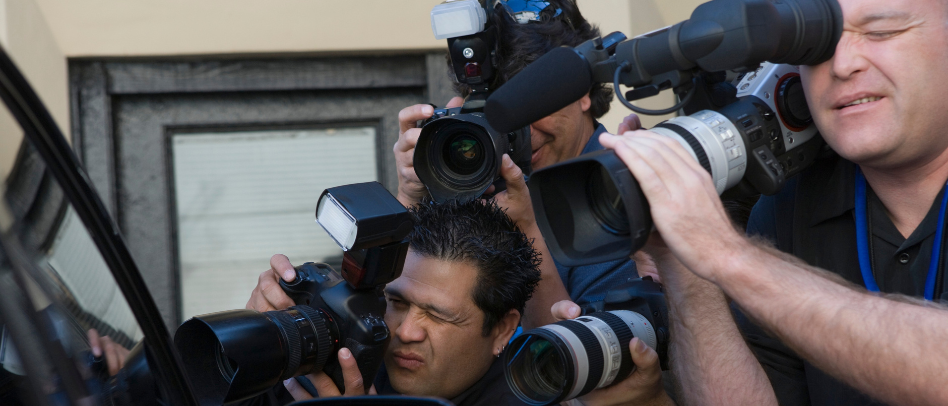When I first started my casino marketing career, the casinos I worked for typically had public relations directors, either in-house, outsourced or a combination of both. Their primary role was focused on story placement—getting our positive messages out to the media and building the casino’s public profile. Back then, it never occurred to any of us that we needed to be prepared for bad news. We were always in control of the narrative, or so we thought.
Then, the internet evolved beyond brochure-style websites, and with it came the rise of social media, forever changing how information spread. Suddenly, we were no longer the gatekeepers of our stories. No matter how small, any incident could spiral out of control online in minutes. The need for a comprehensive crisis communications plan became glaringly obvious.
This is why I originally wrote about the importance of crisis planning—to help casinos navigate a world where bad news can break faster than we can react. But things have changed even more since then. Today, with the speed of news amplified by social media, live streaming, and online news outlets, crises escalate in real-time across multiple channels. We are in an era where not just guests but bad actors can distort information for their gain, making it essential for casinos to be fully prepared.
As I have seen firsthand, casinos are particularly vulnerable due to their high-profile nature, constant guest interactions, and reliance on public perception.
This update reflects what I have learned over the years as news speed has increased and new challenges like misinformation and disinformation have emerged. Now, more than ever, casinos need a comprehensive crisis communications plan that addresses the realities of today’s fast-paced news environment, where a single post can set off a chain reaction.
Crisis communications have become more challenging than ever. Public scrutiny, high-profile incidents, and the potential for reputational damage are constant concerns. As casino operations grow increasingly complex, the need for a comprehensive crisis communications plan has never been greater.
The Instant News World: How Crises Escalate Quickly
Casinos are particularly vulnerable because they are highly visible and serve diverse, vocal communities. Whether it is a negative online review from a guest, a social media outburst, or even an operational issue, it is essential to have a plan for responding quickly and effectively.
Recent events have shown just how rapidly news can spread across multiple channels. Social media platforms such as Twitter, Facebook, and TikTok are often the first to break the news, while online news outlets pick up and amplify the story. One MIT study found misinformation can spread up to 70% faster than true stories on platforms like Twitter, making it all the more important for casinos to stay ahead of the narrative.
Casinos face several crisis scenarios that can quickly spiral out of control, such as customer incidents going viral or live-streamed events capturing unscripted moments. Today, the challenge is the speed at which information travels and the various channels through which it spreads. A story might break on Twitter, be covered by traditional media, be discussed in real-time on live streams, and spread via social media within hours (if not minutes).
Adding to the complexity is the rise of weaponized information, as described by Gini Dietrich. This includes misinformation, disinformation, and malinformation, all designed to damage reputations. Due to their public nature, casinos are particularly susceptible to these attacks, and communicators must be vigilant in spotting and countering them.
The modern news ecosystem allows for unprecedented speed in information dissemination. Still, it also requires a more discerning and engaged audience to navigate the complex landscape of fast-moving news across multiple channels.
Building a Crisis-Ready Team
Casinos must establish a cross-functional crisis team to effectively manage crises in today’s fast-paced environment. This team should include members from marketing, operations, management, and social media. It should be well-prepared, trained, and empowered to act swiftly to mitigate damage. Each team member needs to be assigned clear roles, and a designated spokesperson must be ready to handle media inquiries and public statements.
Identify Key Team Members
A successful crisis response requires a collaborative approach from multiple departments. Your crisis team should include representatives from marketing, operations, management, legal and social media (if handled externally outside of the marketing department.
Each member should have a clearly defined role to avoid confusion during a crisis. These roles should be tested and refined regularly through crisis simulations or drills.
Appoint and Train Designated Spokespeople
In every crisis, it’s critical to have designated spokespersons who can deliver the official statement on behalf of the casino. These people should:
- Be media-trained to handle tough questions.
- Understand the casino’s operations, values, and policies deeply.
- Be calm under pressure, offering clear, concise, and transparent responses.
A spokesperson must be available for immediate response to prevent any vacuum of information, which can lead to rumors or misinformation spreading. It is also crucial to have a backup in case the lead spokesperson cannot comment or is unavailable.
Monitoring News Channels and Customer Sentiment
Monitoring traditional news channels and digital platforms is crucial for avoiding potential crises. Casinos can use tools like Hootsuite or Sprout Social to track customer sentiment, mentions, and breaking news in real-time.
However, as Dietrich suggests, organizations should also be mindful of weaponized information. Social listening tools are essential, but building a system that identifies false narratives from bad actors can be even more beneficial.
With the speed of social media, more than passive monitoring is needed. Casinos must be proactive in spotting emerging issues, especially those related to misinformation and disinformation, so that they can respond swiftly.
Crafting Crisis Messages that Work Across Channels
Consistency across all communications channels is vital in a crisis. However, messaging must be tailored to each platform. What works on Facebook may not be appropriate for a press release or internal email.
Pre-approved templates can help streamline responses, and they must include key elements such as:
- Acknowledging the situation.
- Taking responsibility where necessary.
- Outlining steps being taken to resolve the issue.
- Providing updates as the situation evolves.
It is vital to humanize your responses. While bad actors exploit fear and anger, your team should aim to evoke trust, hope, and transparency. Building emotional intelligence into your communications is a powerful way to connect with your audience during a crisis.
Post-Crisis Brand Recovery in an Instant News World
Once the immediate crisis is over, the work doesn’t end. The post-crisis phase is often just as crucial as the initial response. Brand recovery is an ongoing process that involves maintaining transparency and rebuilding the trust you may have lost with your audience.
A key element in this phase is honest, consistent communication. Social media plays a vital role, allowing your casino to provide regular updates, address lingering concerns, and reinforce your commitment to guests. This is also the time to lean into your brand’s core values, ensuring that every message reflects who you are as an organization.
It is easy for your brand’s purpose to get lost in the chaos during a crisis. However, a clear and purposeful approach to brand recovery can ensure that your values remain intact and resonate with your audience. For example, auditing your brand to understand its current standing, keeping communication transparent with stakeholders, and knowing when to pivot are all critical elements that help rebuild trust and ensure long-term success.
As I emphasized in my original article, preparation is vital. Regular crisis drills and crisis plan updates will prepare your team for anything. However, after a crisis, it is essential to reassess your brand’s positioning, ensuring it aligns with your business’s new reality. This phase isn’t just about responding to the crisis; it is about learning from it and evolving your approach to crisis management.
Proactive Planning: Essential for Today’s Fast-Moving News Cycle
News travels faster than ever; proactive crisis planning is no longer optional. A comprehensive crisis communications plan equips your casino to respond swiftly and effectively when the unexpected occurs. It ensures that every team member knows their role, communications remain consistent, and your brand is protected from long-term damage.
Employee training is equally important. A plan is only effective if your team is prepared to execute it under pressure. Regular drills, updated protocols, and clear communication lines can make all the difference when every second counts.
If your casino isn’t prepared for today’s fast-paced news environment, now is the time to act. Consult with our team to build a complete crisis communications plan tailored to your needs.




Recent Comments